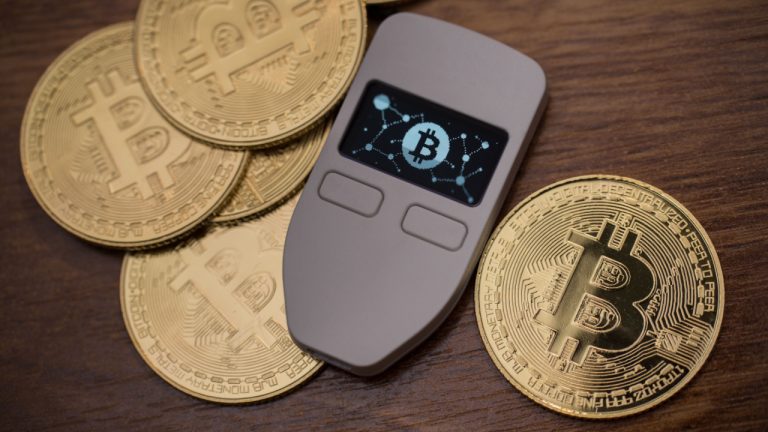
Storing your digital assets on a cryptocurrency hardware wallet such as Trezor is considered to be one of the safest ways to secure your funds. If you have lost your PIN number to access it however, you might be afraid your money is completely gone as there is no-one else that can remember it for you. This is not too rare, as the wallet recovery experts from KeychainX estimate there are several thousands Trezor wallets with a lost PIN. The company itself is currently recovering over $10M locked in Trezor wallets. The experts also explain how you can recover your lost PIN.
How to Hack a Trezor Hardware Wallet
The first step to recover your lost Trezor PIN is to understand all the risks involved, as it requires using side channel attacks, and messing with the physical hardware. The process can result in destroying the wallet or losing access to the assets forever so don’t do anything until you are sure you know what you are doing. You can only try 16 times to enter a PIN to a Trezor and get it wrong before it deletes the stored keys. And you can consider yourself lucky because Ledger only gives you 3 attempts, so that’s even riskier, and the process for hacking a Ledger is so costly doing it for wallets with under $2 million is not even worth it.
If you still want to try to hack your Trezor yourself, the best place to start is reading this article from KeychainX on the matter. It showcases the whole process, including images of opening up the device and connecting it to the hardware needed to crack the PIN. You will also learn that much of the tricks out there for doing this were only true for older Trezor bootloaders (1.7 or below firmware) but even with newer Trezor bootloaders (+1.8.1 firmware) it is still possible to crack the seed and PIN but much harder.
So what are the actual steps to hack the hardware wallet? First you need to break the case of the Trezor and remove a few capacitors to increase the strength of the signal. Then, attach a few wires to your Trezor and run a side channel attack by glitching your Trezor using overvolting. Once the Trezor is glitched, connect it to an FPGA board and initiate an upgrade process on your bootloader. While doing this, Trezor will backup your seed info to memory. Then, dump the memory to a file and decrypt the file to read out your pin and/or seed. Also keep in mind the process can take you anywhere from an hour to a year. All this should make it clear why it is better to let the experts handle it if you want to minimize the risk to your assets.
KeychainX – A Name You Can Trust
Finding anyone you can trust to handle your crypto wallet and potentially gain access to all the assets stored in it is a very daunting task. If you also need to trust them to know how to crack the delicate hardware in a process that is very risky and can destroy the unit forever such as here, this becomes almost impossible.
Luckily, KeychainX has operating since 2017 and it has an almost perfect 4.9 ‘Excellent’ score on Trustpilot. Over the years team has been successful recovering funds from bitcoin wallets, Metamask, Blockchain, hardware wallets, Dogecoin, Ethereum presale wallets, Multibit and more.
As one of the leading experts in the field of crypto wallet recovery, KeychainX CEO Robert Rhodin, often appears publicly at industry events, where you can see him in person. The company also has patents registered in reputable jurisdictions such as New Zealand, Australia, U.S., EU, Brazil, Japan and Russia, with 15 more territories pending. These patents for a keyless crypto wallet using biometrics and geometrics as well as a decentralized social recovery method (see video below for details).
To learn more about the company visit KeychainX.io or just send an email to KeychainX@protonmail.com directly to talk about crypto wallet recovery.
This is a sponsored post. Learn how to reach our audience here. Read disclaimer below.
Comments
Post a Comment